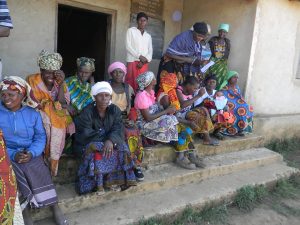Small Grants to empower rural communities
By DeodatusMfugale
Dar es Salaam, Tanzania.
August, 30 2017
Recently the Unite d Nations Development Programme (UNDP) disclosed 5.2 billion shillings to 60 rural communities in Tanzania ( mainland and Zanzibar), through the the Global Environmental Facility Grants Programme(GEF).
d Nations Development Programme (UNDP) disclosed 5.2 billion shillings to 60 rural communities in Tanzania ( mainland and Zanzibar), through the the Global Environmental Facility Grants Programme(GEF).
With these small grants, millions of rural Tanzanians will implement projects ranging from provision of sustainable energy to water supply and sanitation. Projects on climate change adaptation such as fish farming, beekeeping and horticulture will be implemented. These community-based activities in agriculture, fisheries, livestock management, agroforestry and solar energy are meant to address the direct needs of the rural poor. Additionally, other areas will be covered include conservation of water sources, ecotourism, promotion of land use planning and small and artisanal mining.
Women empowerment
These small grants will not only be able to positively impact the lives of millions of Tanzanians but these financial supports will also gain valuable skills and experience to the communities on sustainable basis, according to the UNDP.
In Western Kilimanjaro, for instance, part of the Lake Natron Ecosystem will focus on building the resilience of local communities to climate change impacts through their participation in development projects. Climate Action Network Tanzania is the lead partner in implementing this project that will promote appropriate ecosystem management through landscape planning. It will also promote gender mainstreaming in climate smart agriculture and other activities.This project aims also to provide space for women, men and youth. It will help them to participate fully in all activities.
“It is important to fund activities among rural communities because they are part of the critical dimensions of development,” said the UNDP Officer In Charge, David Omozuafoh.
To his view, this project will also protect indigenous knowledge on environment and natural resources and will establish community based ecosystem management committees, through education ( training, learning best practices.
“Development activities at community level provide policy feedback on poverty eradication strategies whereas community-based experiences and ideas constitute building blocks for people-centred policies and strategies,” explained the UNDP officer.




